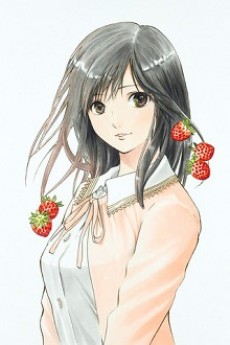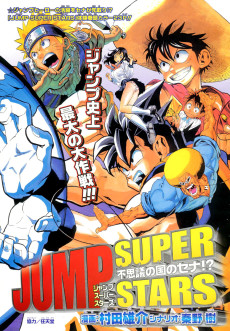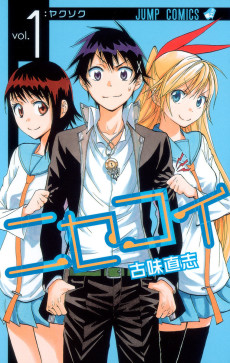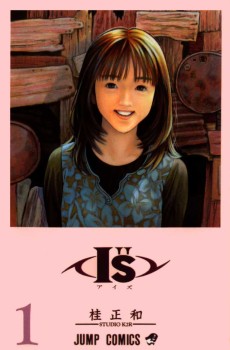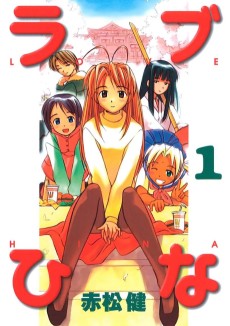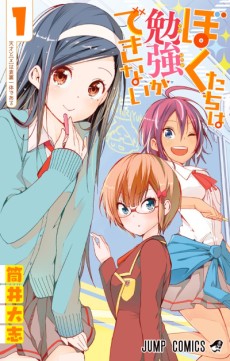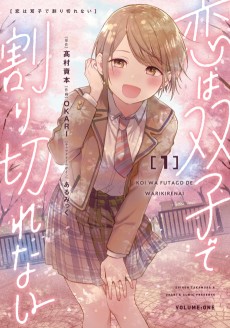ICHIGO 100%
STATUS
COMPLETE
VOLUMES
19
RELEASE
July 25, 2005
CHAPTERS
170
DESCRIPTION
Junpei Manaka sneaks up to the roof to see the sunset. When he opens the door, he startles a mysterious beauty. She panics and runs away, but before not Junpei has caught sight of her adorable strawberry print panties... in EXTREME close-up. With that vision forever burned into his memory, Junpei embarks on a quest to find the girl, and the panties, of his dreams!
(Source: Viz Media)
Note: Includes 3 extras.
CAST
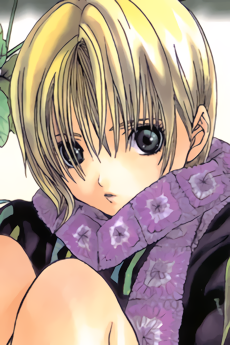
Tsukasa Nishino
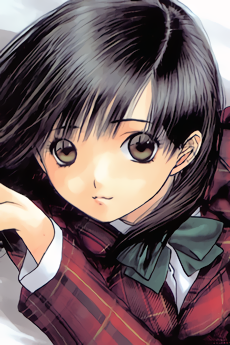
Aya Toujou
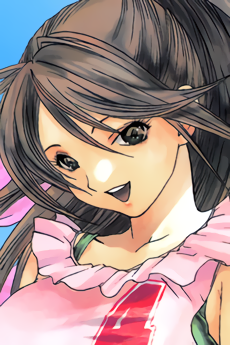
Satsuki Kitaouji
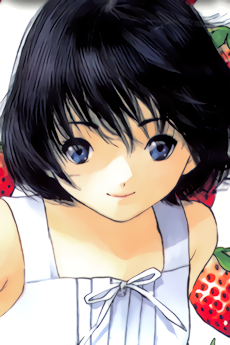
Yui Minamito
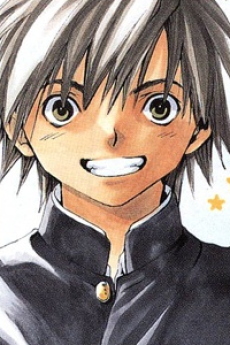
Junpei Manaka
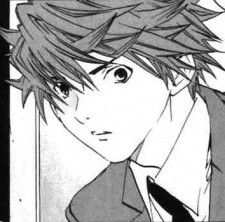
Amachi
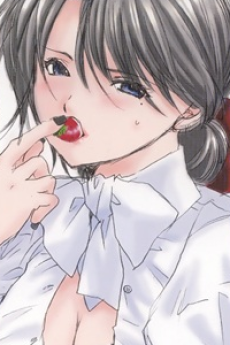
Shiori Kurokawa
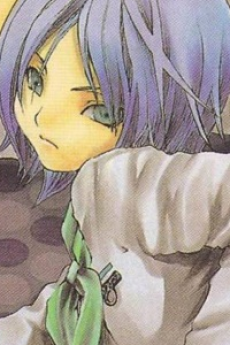
Misuzu Sotomura
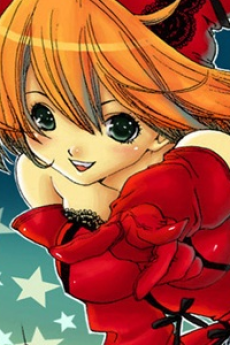
Chinami Hashimoto
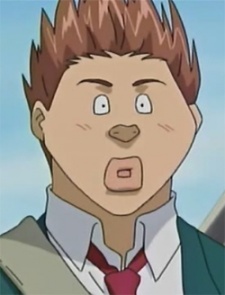
Rikiya Komiyama
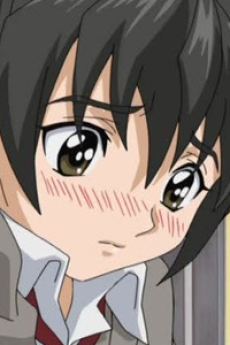
Kozue Mukai
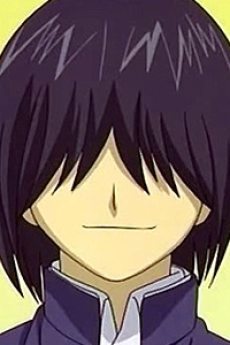
Hiroshi Sotomura
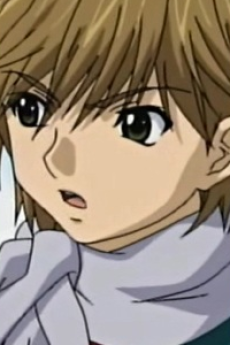
Ookusa
CHAPTERS
RELATED TO ICHIGO 100%
REVIEWS

luhn
90/100One of the best and most timeless harem-romance manga that's undeservingly, criminally underratedContinue on AniListTL;DR Despite its flaws that's pretty much expected from its harem category, it is surely a timeless gem in the harem-romance genre for its beautifully developed main characters thrust in a compelling take on a whimsical, exciting, kinda bold, and overall sweet high school romance, all the while in the scope of an unexpectedly overarching coming-of-age story. Still, the long, unpredictable, 'dramatic' journey that ultimately leads to that satisfying conclusion isn't for everyone, but I'd still say to give it a chance.
P.S.: Never EVER watch the anime.
Ichigo 100% starts off from Junpei's chance encounter with a girl wearing strawberry panties. This strong attraction of his—both weird and may or may not be expected from a boy in adolescence—led him to confess to his popular classmate Nishino, thinking she was that girl. However, it turned out to be Aya, the other girl he recently met and admired for her gift in writing, leading to a seemingly artificial plot driven by Junpei's overthinking, indecisiveness, and wavering feelings for each girl.
From that alone, you find a weird premise that's not helped by its awkward start and its beginning of a series of frequent pandering to the male audience (i.e. fanservice and outright ridiculousness).
Even then, besides the mostly captivating art, these are outweighed by the development the main characters undergo. During their 3rd year of middle school, they start off as vague—frequently fumbling and lacking emotional depth—in their relationships and generally immature. However, they are able to grow past that to be more empathic, levelheaded, decisive, and fulfilled throughout and beyond their 3 years of high school. This is made possible by the delicate effort put into individual characterization, especially in relation with their formed friendships as well as their underlying pursuits for their dreams, aspirations, and passions.
Junpei is like a lot of harem protagonists: simple, dense (though not as dense), unpopular, and stupid, though with a dream of becoming a future film director. When the time counts, he puts in effort and steels himself with bravery and perseverance for the people he cares about. More importantly, though, he is often found lost in thought about a certain girl's feelings, his actions (or lack thereof), and so on.
But it is precisely in his simple mind that we are able to see Junpei at his utmost, heartfelt honesty (and sometime idiocy). We can see him deeply acknowledge and dwell upon his shortcomings, seeking to find ways to make things right and not let things end the way they are. We can see him be selfless to a fault, earnestly praying for someone's happiness and ensuring he's there to support them. Heck, it's almost endearing to see his thoughts and actions be reflective of a hopeless romantic (e.g. "I still want to be with her-"), but also of a guy who's willing to understand and be more considerate of others' feelings, as well as to become better than the idiot that he was yesterday (even if sometimes a tad too late).
Despite his harem MC-like traits, he shines with the genuineness of his words, thoughts, and actions as well as his eventual maturity—a trait I feel is so deeply lacking in many other harem protagonists.
Besides Junpei, the mangaka also did a splendid job capturing why each girl is endearing and charming in their own way, as their interactions with him spark unique, interesting conversations and outcomes that make it seem like they're all kind of a good fit for him. Either way, the emotional connections they form and strengthen provide a heartwarming (and sometimes outright captivating) experience.
More importantly, of course, is how the girls likewise go through a journey where they find and work resolutely towards a dream to call their own: one not hinged on or set back by a clutch on someone else, but one truly independent of the whims and desires of others. In firm pursuit of that dream, the characters had to change, and change they did: apart and together. Above all else, I will always love how much agency the characters seemed to have; these people were more than just romantic interests waiting for the protagonist to love them.
I can't say the same for the other supporting characters, however. Some of them were essentially forgotten by the end of the story, and I heavily dislike the late introduction of another romantic interest for Junpei, who only actually served as fanservice due to her perverted thoughts and as a plot device for certain characters to be more assertive of their feelings.
Although I'd like to say that the manga would've been better off with just a love triangle, I find the other girls (sans the one I mentioned above) quite important to the development of Junpei, and I think the interesting interactions they kicked off cannot be undermined. Still, I stand firm that the manga would've benefited if it did away from the ecchi.
Overall, Ichigo 100% was an enjoyable ride as I saw the characters mature despite the bumps in the road. In spite of Junpei's idiocies, his monologues, dialogues, and subsequent actions deeply flesh him out as more than just an indecisive, perverted guy, and I'd go so far as to say he is one of the most fleshed out harem protagonists out there.
While far from perfect, I daresay Ichigo 100% is one of the best harem manga to ever exist. It continues to withstand the test of time with its classic but compelling, immersive harem-romance storyline spanning the momentous, tumultuous periods of the characters' lives, tackling a whimsical, exciting, kinda bold, and overall sweet high school romance that's only offset by the generally disliked drama (read: misunderstandings) that ensued throughout the story.
Nevertheless, once you finish the manga and look back on previous chapters of what they've been through, you'll just know Junpei made the right choice of girl and that they'll work it out precisely because of their growth (apart and together) as well as their strong, mutual love that stood against, well, everything. More importantly, though, the ending is incredibly deserved and emotionally powerful thanks to the wild journey that molded and led the characters—especially Junpei—to where we see them in the final chapter. The narrative Ichigo 100% told managed to come full circle, providing a deeply satisfying story no other harem-romance manga has ever done (for me).

NapoJ
80/100Juventud con sus sueños, metas y romance (reseña en ESP y ENG)Continue on AniListLa siguiente reseña está en Español e Inglés (traducida con el apoyo de DeepL)
La versión leída es la traducción al español por “Chulontoro Wordpress”
Manaka no es excesivamente diferente a los arquetipos conocidos para el protagonista del harem romántico escolar, referido a ser algo denso respecto a entender los sentimientos de los demás y no ser especialmente valiente ni extrovertido, sin embargo, también se diferencia de similares, porque es consciente de sus limitaciones y se decide a mejorar por su crecimiento personal.
En principio es socialmente torpe, malentiende sus sentimientos y el de los demás, es incapaz de comunicarse para expresar lo que auténticamente piensa, mucho menos actuar en favor de ello, y su valentía es sólo trazos de genialidad. Pero tal como implica el género, hay más de una chica interesada en él por diversas razones sean, ser la amiga de la infancia, gustos compartidos y mutuo apoyo, la conexión que comparten entre sus personalidades similares o que ese instante de genialidad permitió que se apreciarán el uno al otro.
Las razones son coherentes con el desarrollo y con los personajes, evitando la construcción de un prototipo de protagonista demasiado idealizado para verlo cercano, en cambio es el camino de un chico que ha sido mayormente un introvertido que aún si tiene sus momentos, cuyo desarrollo será conseguir que esos instantes no sean la excepción sino el constante de quien quiere ser. Tampoco es ser un casanova, sino un joven que pueda ser considerado un ejemplo a seguir y ser fuente de orgullo entre quienes quiere. Convertirse en un buen hombre.

Por supuesto, este descubrimiento no es inmediato ni pronto, es conseguido de una conciliación con sus sentimientos y lo que quiere llegar a hacer, dado a que, como es normal en el contexto del género, la historia se desarrolla durante la secundaria, el espacio para la reflexión acerca de los sueños e inquietudes acerca del futuro, encontrar cuál su objetivo y cómo llegar a ese punto.
Las chicas (las principales por lo menos) no son únicamente el complemento a los malentendidos románticos de la historia. Son personajes plenamente construidos y válidos por sí mismos, tienen sueños, miedos y deseos, como cada una lo afronta es diferente a las demás, que junto a sus personalidades, las vuelve únicas y con valor. El camino en cómo cada una de ellas afronta sus sentimientos, puede chocar con el de las demás, provocando las diferentes resoluciones que conforman la columna de la historia.
El viaje de Aya, el descubrimiento de Tsukasa o la inacabable voluntad de Satsuki. Y no sólo son sus valores individuales, el club escolar, ese omnisciente personaje de las historias adolescentes, no expresado a través de diálogo sino en observaciones. La evolución del pequeño club de cine dedicado a construir esa obra anual que exhibir con orgullo, también es el lugar para los malentendidos románticos picantes o las típicas bromas de camaradería.

La dimensión escolar está gratamente abordada, además de que haya durado lo suficiente para abordar en plenitud todos esos años, válida lo que hubiera sido una duración más extensa de lo que debería. Es inevitable que en la despedida, de habernos involucrado aunque sea un poco con sus personajes y vivencia, no sintamos la agridulce sensación del fin de la tierna juventud.
A destacar la labor de Mizuki Sensei en retratar una historia con un trazo distintivo, de expresiones faciales fuertemente marcadas en la suavidad de sus líneas, ni tengo que hacer esfuerzo para recordarlas, ese es el nivel de impresión que es capaz de dejar en los lectores. Como también es el ritmo de la historia a través de su enmaquetado cada vez más cerca de la nostalgia mientras llega al final, donde aprovecha ese escenario escolar para encuadres de pequeñas memorias hechas fotografías.
Usualmente la veo incluida en la clasificación de “historias ecchi de la Jump”, y ciertamente, tiene ese toque picante/fanservice, más tampoco es tan constante ni atrevido como otros ejemplo de la revista que son incluidos en esa misma línea. Eso sí, plenamente agradecido con el diseño de las chicas protagonistas, son plenamente guapas sin dejar de ser terrenales. También a destacar como sube el voltaje en esos paneles de contacto físico, sea por la torpeza del protagonista inherente al género o por motivos de la trama, se transmite la emoción que permea el momento.

Y sin embargo, alguien leerá está reseña y se topará con el elefante blanco “Entonces ¿Por qué no ha trascendido?” Es una pena que sea condenada, a no ser de un nuevo anime que no creo nadie esté pensando en producir, a la clasificación “fue un éxito en la Jump”. La adaptación animada no tuvo la mejor de las suertes y sencillamente ha sido reducida al nicho del manga, tampoco es como si la obra tuviera alguna razón para trascender, es sencillamente las cosas bien hechas, sin innovar en ninguna manera.
Es la mala suerte de quienes son consistente sin ser especiales, lo cuál sigue siendo una declaración injusta, porque para quien quien le dé la oportunidad, podrá ver en ella esa historia que no pretende llamar la atención, sino que da lo mejor de sí para sus personajes, en medio de malentendidos, declaraciones, pantallas y memorias. Una juventud cualquiera.
English
Manaka is not excessively different from the archetypes known for the protagonist of the school romantic harem, referred to be somewhat dense with respect to understanding the feelings of others and not being especially brave or outgoing, however, also differs from similar, because it is aware of its limitations and is determined to improve for their personal growth.
In principle he is socially awkward, misunderstands his feelings and those of others, is unable to communicate to express what he genuinely thinks, much less act on it, and his bravery is only traces of genius. But as the genre implies, there is more than one girl interested in him for various reasons be it, being the childhood friend, shared tastes and mutual support, the connection they share between their similar personalities or that instant of genius allowed them to appreciate each other.
The reasons are consistent with the development and with the characters, avoiding the construction of a prototype of a protagonist too idealized to see him close, instead it is the path of a boy who has been mostly an introvert that even if he has his moments, whose development will be to get those moments are not the exception but the constant of who he wants to be. Nor is it to be a casanova, but a young man who can be considered an example to follow and be a source of pride among those he loves. To become a good man.

Of course, this discovery is not immediate and not soon, it is achieved by a reconciliation with his feelings and what he wants to do, since, as is normal in the context of the genre, the story takes place during high school, the space for reflection about dreams and concerns about the future, find what your goal and how to get to that point.
The girls (the main ones at least) are not only the complement to the romantic misunderstandings of the story. They are fully constructed and valid characters in their own right, they have dreams, fears and desires, how each one faces them is different from the others, which together with their personalities, makes them unique and courageous. The way in how each one of them faces their feelings, may clash with each other, causing the different resolutions that make up the backbone of the story.
Aya's journey, Tsukasa's discovery or Satsuki's endless will. And it is not only their individual values, the school club, that omniscient character of teenage stories, not expressed through dialogue but in observations. The evolution of the small film club dedicated to building that annual work to proudly exhibit, it is also the place for racy romantic misunderstandings or typical camaraderie banter.

The school dimension is pleasantly addressed, in addition to the fact that it has lasted long enough to fully address all those years, valid what would have been a longer duration than it should have been. It is inevitable that in the farewell, if we have been involved even a little with their characters and experiences, we do not feel the bittersweet sensation of the end of the tender youth.
To highlight the work of Mizuki Sensei in portraying a story with a distinctive stroke, facial expressions strongly marked in the softness of his lines, I do not even have to make an effort to remember them, that is the level of impression that is able to leave on readers. As it is also the rhythm of the story through its packaging closer and closer to nostalgia as it reaches the end, where it takes advantage of that school setting for frames of small memories made photographs.
I usually see it included in the classification of “Jump ecchi stories”, and certainly, it has that spicy/fanservice touch, but it is not as constant or daring as other examples of the magazine that are included in that same line. I'm also thankful for the design of the main girls, they're totally cute while still being earthy. Also to highlight how the voltage rises in those panels of physical contact, either by the clumsiness of the protagonist inherent to the genre or for reasons of the plot, the emotion that permeates the moment is transmitted.

And yet, someone will read this review and run into the white elephant “So why hasn't it transcended?” It's a shame that it's doomed, barring a new anime that I don't think anyone is thinking of producing, to the “it was a hit at Jump” classification. The animated adaptation didn't have the best of luck and has simply been reduced to the manga niche, it's not as if the work had any reason to transcend, it's simply things done well, without innovating in any way.
It is the bad luck of those who are consistent without being special, which is still an unfair statement, because whoever gives it a chance, will be able to see in it that story that does not pretend to call attention, but gives the best of itself to its characters, in the midst of misunderstandings, statements, screens and memories. An ordinary youth.
SIMILAR MANGAS YOU MAY LIKE
 MANGA ComedyKanojo, Okarishimasu
MANGA ComedyKanojo, Okarishimasu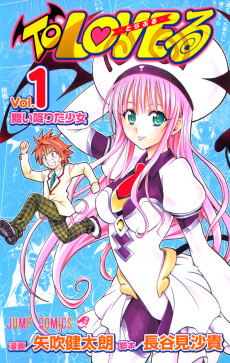 MANGA ComedyTo LOVE-Ru
MANGA ComedyTo LOVE-Ru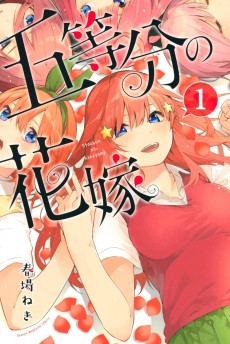 MANGA ComedyGo-toubun no Hanayome
MANGA ComedyGo-toubun no Hanayome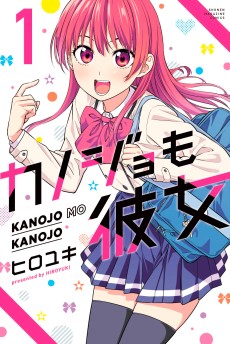 MANGA ComedyKanojo mo Kanojo
MANGA ComedyKanojo mo Kanojo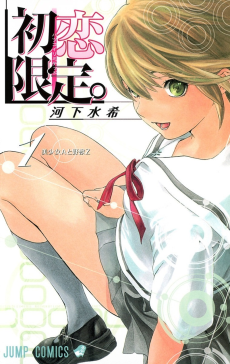 MANGA ComedyHatsukoi Limited
MANGA ComedyHatsukoi Limited
SCORE
- (3.65/5)
MORE INFO
Ended inJuly 25, 2005
Favorited by 222 Users



